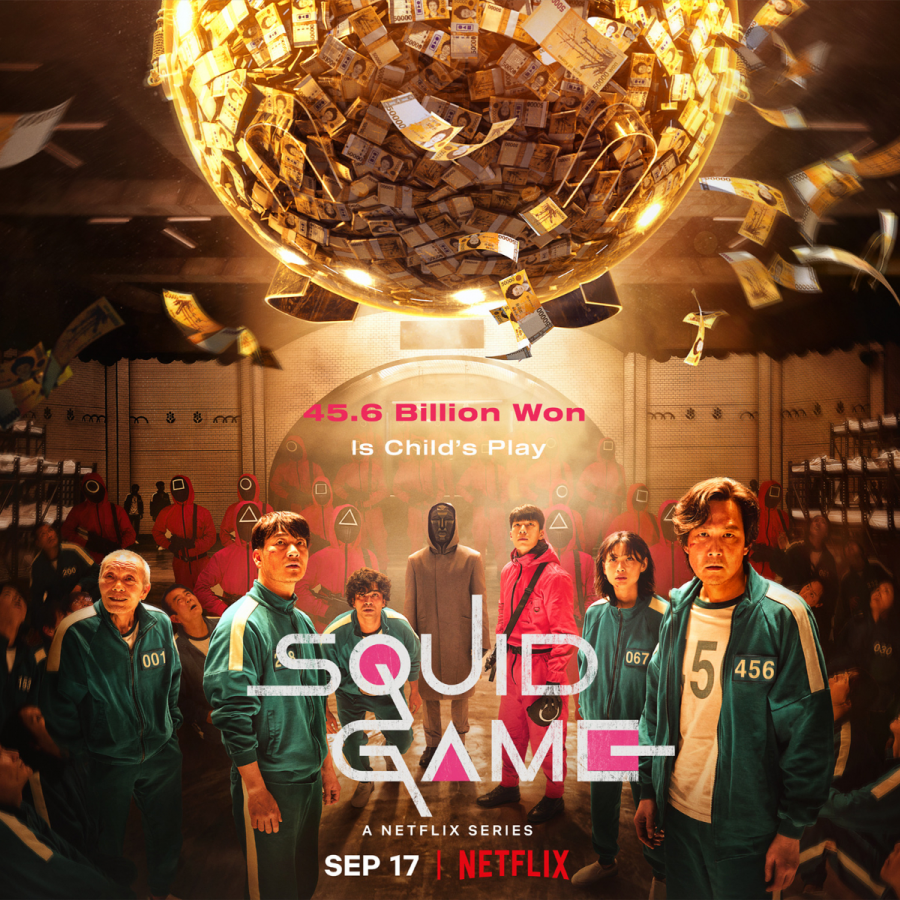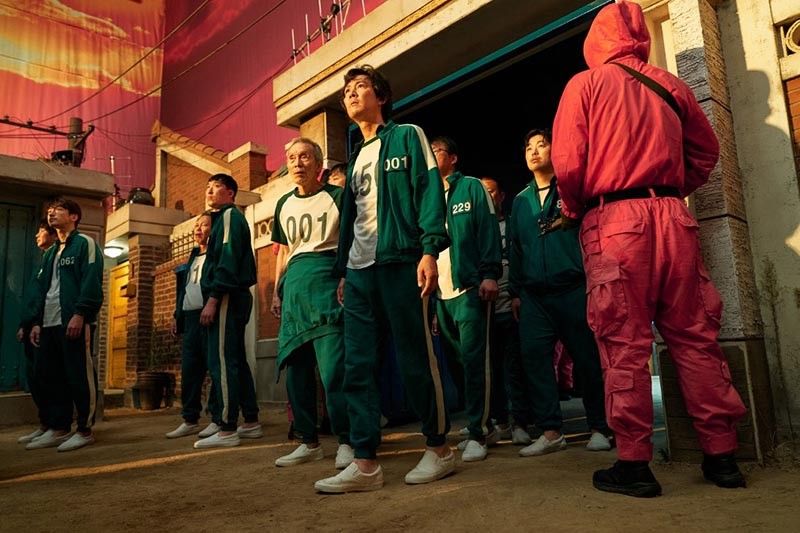Squid Game KPKuang: The Cultural Phenomenon Revolutionizing Entertainment
You might’ve heard about it by now, but let’s be real—Squid Game isn’t just another Netflix show. It’s a global sensation that’s taking the entertainment world by storm. This South Korean thriller has become a cultural phenomenon, and if you’re still scratching your head about why everyone’s talking about it, you’re in the right place. So buckle up, because we’re diving deep into the heart of this revolutionary entertainment experience.
Squid Game isn’t just a TV series—it’s a cultural earthquake that’s shaking up the entertainment industry. From its mind-blowing plot twists to its vibrant color schemes, this show has captured the hearts of millions worldwide. People are obsessed, and for good reason. It’s not just about a game; it’s about survival, greed, and humanity’s darkest sides.
Whether you’re a fan of K-dramas or just someone who loves a good binge-watch, Squid Game offers something for everyone. It’s breaking boundaries, smashing records, and sparking conversations across the globe. And if you haven’t watched it yet, trust me, you’re missing out on a cultural experience that’s redefining what entertainment can be.
Read also:Tom Selleck A Look At The Iconic Actors Life And Career Today
Table of Contents
- Introduction: The Rise of Squid Game
- What is Squid Game?
- The Cultural Impact of Squid Game
- Why is Squid Game So Popular?
- KPKuang: The Unsung Hero of Squid Game
- How Squid Game is Revolutionizing the Entertainment Industry
- Design and Aesthetics: What Makes Squid Game Visually Striking?
- Fan Reactions: What Are People Saying?
- Future Implications: What’s Next for Squid Game?
- Conclusion: Why Squid Game Matters
Introduction: The Rise of Squid Game
Squid Game is more than just a show—it’s a movement. Created by Hwang Dong-hyuk, this series premiered on Netflix in September 2021 and quickly became a sensation. Within weeks, it topped the charts in over 90 countries, becoming the most-watched series in Netflix history. But what exactly is Squid Game, and why is it so revolutionary?
At its core, Squid Game is a survival drama that explores themes of poverty, greed, and societal inequality. The story follows a group of indebted individuals who are invited to participate in a series of children’s games for a chance to win a massive cash prize. But here’s the twist: these games are deadly, and only one person can survive. Sounds intense, right? That’s because it is.
What makes Squid Game truly remarkable is its ability to blend entertainment with social commentary. It’s not just a thriller; it’s a mirror reflecting the harsh realities of modern society. And that’s why people can’t stop talking about it.
What is Squid Game?
So, let’s break it down. Squid Game is a South Korean survival drama that revolves around a group of 456 players who are struggling financially. They’re offered a chance to win 45.6 billion won (about $38 million USD) by participating in a series of six games. These games may sound familiar—Red Light, Green Light, Tug-of-War, and the titular Squid Game—but they come with a deadly twist. If you lose, you die. Simple, right?
But it’s not just about the games. Each player has their own backstory, and their motivations for joining the competition are as compelling as the games themselves. From the protagonist, Seong Gi-hun, to the enigmatic KPKuang, every character adds depth to the narrative. It’s a show that keeps you on the edge of your seat, and you can’t look away.
Why Should You Care?
Squid Game isn’t just another thriller. It’s a commentary on the struggles of modern life, the pressures of debt, and the lengths people will go to survive. It’s a show that makes you think, and that’s what sets it apart from the rest. Whether you’re into action, drama, or social commentary, Squid Game has something for everyone.
Read also:Rick Steiner Net Worth The Wealth Of A Wrestling Legend
The Cultural Impact of Squid Game
Squid Game has become a cultural phenomenon for a reason. It’s not just a show; it’s a conversation starter. People are talking about it on social media, at work, and even in their homes. It’s sparked discussions about societal inequality, mental health, and the human condition. And that’s the power of great storytelling.
But it’s not just the themes that make Squid Game so impactful. The show’s visual style, from its vibrant red and green color palette to its eerie mask-wearing guards, has become iconic. People are recreating the games, wearing the outfits, and even creating their own versions of the show. It’s a cultural phenomenon that’s here to stay.
Breaking Boundaries
Squid Game is also breaking boundaries in the entertainment industry. It’s a South Korean show that’s reaching audiences worldwide, proving that great storytelling transcends language and culture. It’s a testament to the power of global entertainment and the growing influence of Asian media.
Why is Squid Game So Popular?
There are a few reasons why Squid Game has become so popular. First, it’s got a killer premise. Who wouldn’t want to watch a group of people fight for their lives in a series of childhood games? It’s thrilling, suspenseful, and utterly addictive. But it’s not just about the plot. The characters are complex, the themes are deep, and the production value is top-notch.
Second, Squid Game taps into universal emotions. It’s about survival, friendship, betrayal, and the human spirit. These are themes that resonate with people across cultures and backgrounds. And when you add in the stunning visuals and nail-biting twists, you’ve got a show that’s hard to resist.
What Makes It Unique?
Squid Game stands out in a crowded market because it’s not afraid to take risks. It’s unapologetically South Korean, with its own cultural references and nuances. But it also speaks to a global audience, addressing issues that affect us all. It’s a show that challenges conventions and pushes boundaries, and that’s why it’s so beloved.
KPKuang: The Unsung Hero of Squid Game
Now, let’s talk about KPKuang. Who is this guy, and why is he so important? KPKuang, or Kang Sae-byeok, is one of the key players in the game. She’s a North Korean defector who’s struggling to make ends meet in South Korea. Her story adds another layer of complexity to the show, highlighting the challenges faced by defectors and the societal divides between North and South Korea.
KPKuang’s character is a testament to the show’s commitment to diversity and representation. She’s strong, intelligent, and resourceful, and her journey is both heartbreaking and inspiring. She’s a reminder that even in the darkest of times, there’s always hope.
KPKuang’s Impact
KPKuang’s presence in the show has sparked important conversations about North Korean defectors and their experiences. It’s a topic that’s often overlooked, and Squid Game brings it to the forefront. Her character adds depth to the narrative and challenges viewers to think about the world beyond their own borders.
How Squid Game is Revolutionizing the Entertainment Industry
Squid Game is more than just a show; it’s a game-changer for the entertainment industry. It’s proving that global content can be just as successful as Hollywood blockbusters. It’s also paving the way for more diverse voices and stories to be told on a global stage.
Netflix has taken notice, and they’re investing heavily in Asian content. They’ve already announced plans for a second season of Squid Game, as well as other projects from South Korean creators. This is a huge win for the industry, and it’s only the beginning.
The Future of Global Entertainment
Squid Game is just the tip of the iceberg. As more and more people discover the richness of global content, we can expect to see even more diverse and innovative stories hitting our screens. It’s an exciting time for the entertainment industry, and Squid Game is leading the charge.
Design and Aesthetics: What Makes Squid Game Visually Striking?
Squid Game’s visual style is one of its most striking features. From the stark contrast of red and green to the eerie mask-wearing guards, every detail is carefully crafted to create a sense of unease and tension. The set design, costumes, and lighting all work together to immerse viewers in the world of the show.
But it’s not just about aesthetics. The design choices in Squid Game are deliberate and meaningful. They reflect the themes of the show and enhance the storytelling. It’s a masterclass in how design can elevate a narrative and make it unforgettable.
Color Symbolism
One of the most notable aspects of Squid Game’s design is its use of color. Red and green are used throughout the show to create a sense of contrast and tension. Red symbolizes danger and blood, while green represents life and hope. This duality is reflected in the show’s themes, making the visual style an integral part of the narrative.
Fan Reactions: What Are People Saying?
Fans of Squid Game are vocal, and they’re not shy about sharing their opinions. Social media is flooded with memes, fan art, and discussions about the show. People are praising its storytelling, character development, and visual style. They’re also debating the twists and turns of the plot, trying to piece together the mysteries of the game.
But it’s not just about the entertainment value. Many fans are using Squid Game as a springboard for deeper conversations about societal issues. They’re discussing poverty, inequality, and mental health, and they’re finding common ground through the show. It’s a testament to the power of great storytelling to bring people together.
Global Reach
Squid Game’s global reach is unprecedented. It’s connecting people from all over the world, sparking conversations and building communities. Fans are sharing their experiences, creating content, and engaging with each other in ways that transcend language and culture. It’s a phenomenon that’s breaking down barriers and bringing people closer together.
Future Implications: What’s Next for Squid Game?
The future looks bright for Squid Game. With a second season in the works and new projects on the horizon, the show is set to continue its reign as a cultural phenomenon. But its impact goes beyond just entertainment. It’s paving the way for more diverse and inclusive content, and it’s changing the way we think about global media.
Squid Game is a reminder that great storytelling can transcend borders and bring people together. It’s a show that’s redefining what entertainment can be, and it’s doing it in a way that’s both innovative and meaningful. The future of global entertainment is here, and Squid Game is leading the way.
What Can We Expect?
As Squid Game continues to evolve, we can expect even more groundbreaking content. The second season promises to be just as thrilling and thought-provoking as the first, and we can’t wait to see what the creators have in store. But more importantly, we can expect to see a shift in the entertainment industry towards more diverse and inclusive storytelling. Squid Game has set the bar high, and it’s up to others to follow suit.
Conclusion: Why Squid Game Matters
In conclusion, Squid Game is more than just a show—it’s a cultural phenomenon that’s revolutionizing entertainment. It’s a masterclass in storytelling, design, and social commentary, and it’s connecting people from all over the world. Whether you’re a fan of thrillers, dramas, or social commentary, Squid Game has something for everyone.
So, what are you waiting for? Dive into the world of Squid Game and experience the phenomenon for yourself. And when you’re done, don’t forget to share your thoughts, engage with the community, and keep the conversation going. Because that’s what Squid Game is all about—connecting, inspiring, and changing the world, one episode at a time.


